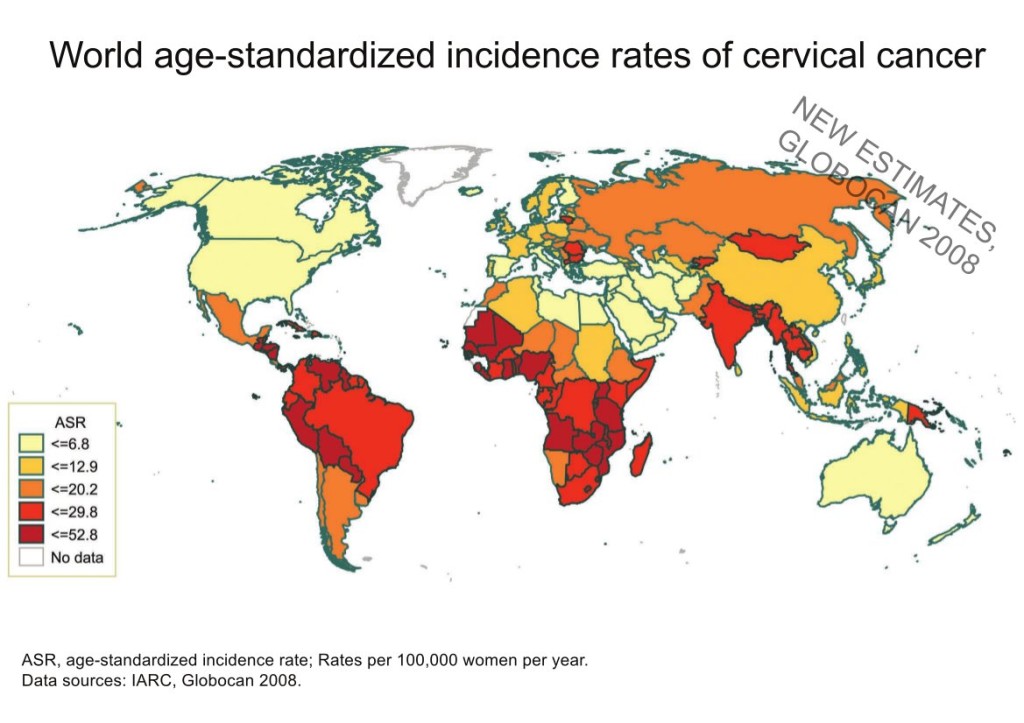What is Cervical Cancer?
Cervical cancer is one of the most common cancers among women worldwide. In cervical cancer, (cancer of the uterine cervix), cancer develops in the tissues of the cervix, which is a part of the female reproductive system. The cervix connects the upper body of the uterus to the vagina. Its mortality exemplifies health inequity, as its rates are higher in low & middle-income countries (LMICs). Around 80% of global cervical cancer cases are in LMICs. Cancer of the cervix is primarily caused by human papillomavirus (HPV) infection, for which there is a vaccination now available. This vaccination is compulsory for women in several countries. In Australia, it is compulsory for men and women likewise. A many well-informed and concerned doctors take this vaccination and also give it to their near and dear ones. HPV is a sexually transmitted infection, making
cervical cancer a chronic disease with an infectious etiology. At least 75% of sexually active men and women get HPV at some point in their lives.
Burden of Cervical Cancer in India:

WHO World age-standardised incidence rates of cervical cancer, Marking India as a country with very high incidence, with data collected from just 9 centres across India.
India has a disproportionately high burden of cervical cancer. It accounts for nearly one-fourth of global cervical cancer burden and 27% of world cervical cancer deaths occur in India .
Prevention:
Health Promotion & Education
According to a WHO report on comprehensive cervical cancer control, health education and promotion should be an integral part of any national cervical cancer control program. It should incorporate an awareness component, informing women and/or their families:
-
Cervical cancer is preventable,
-
The signs and symptoms of the disease,
-
They should do if signs and symptoms are present,
-
Regular screening is essential to detect the cancer early and avoid disability and death from the disease. It should also include aspects of behaviour modification, informing the population about:
-
The sexual and behavioural risk factors of cervical cancer,
-
The use of condoms
-
Avoiding multiple sexual partners,
-
Delaying first sexual intercourse,
-
Reducing parity,
-
Reducing tobacco use.
-
Counselling
And last but the most important is getting Vaccinated before the first sexual intercourse.
Going to a trusted and certified doctor whose interests are the same as yours is advisable. A lot of awareness is being created about the same. And by getting vaccinated can we can save our current and the upcoming generations. It directly will affect the future of our race.
So live healthy, live safe. Get yourself and your beloved vaccinated/screened today.
Feel free to contact/question us at contact@smsaraipur.co.in
Leave a reply